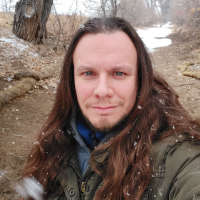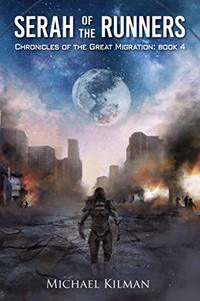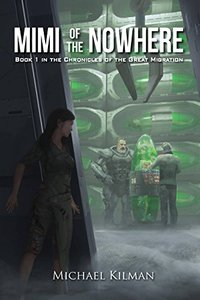Michael Kilman Interview Published on: 03, Aug 2019
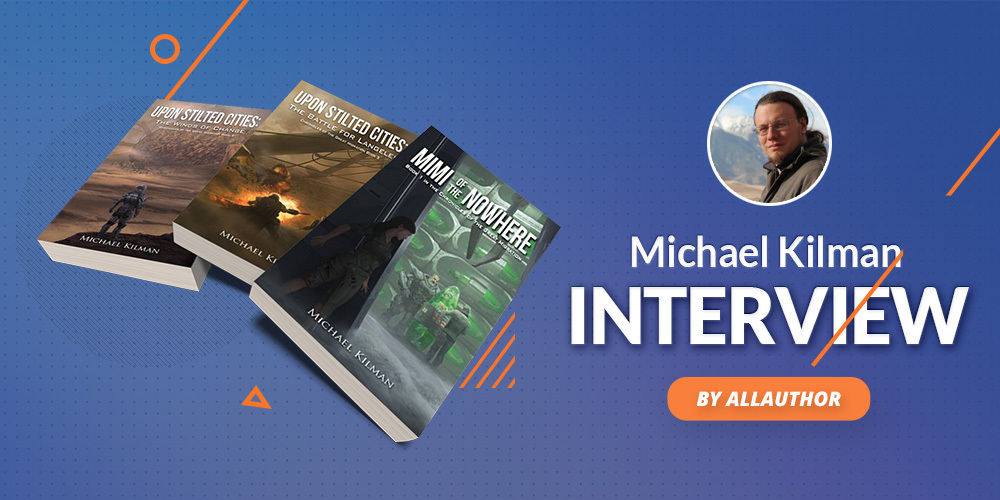 Where were you born? What were your dreams as a child?
Where were you born? What were your dreams as a child?
I was born just outside of Philadelphia. As a child all my goals and dreams surrounded science. Usually I shifted between wanted to visit space or become a paleontologist.
What made you decide to graduate with an M.S. in Anthropology at Portland State University?Ultimately I became a social scientist since people absolutely facinate me and after doing some undergraduate field work in Anthropology I decided to go to graduate school at Portland State University under the direction of Dr. Jeremy Spoon. While there I worked on a project with 17 Native American Tribes and the military. For my Masters Thesis, I explored a social justice theater organization based out of Denver Colorado who used theater to encourage conversations around serious community issues and how to solve them.
How would you describe your experience of working with various Native American tribes in the American Southwest?What's important to understand about Native American Tribes is that they are each culturally distinct. Each tribe has it's own language and cultural history. It's a huge mistake to lump them together into a single category. Working in the filed with various tribes I also learned a lot about the historical events that aren't covered in general middle school and high school history. I learned that much of the terrible things that the US government and military has down has been hidden or kept quiet and that as a result we have created terrible circumstances with the reservation system and profited greatly from their suffering.
Being an anthropologist, filmmaker and artist, what inspired you to start writing?I always wrote. I started writing my first book as a teen, but ultimately gave up on it. I still have those drafts and I look at them once in a while and chuckled. But I always loved to tell stories. Stories are the core of anthropology, the core of filmmaking and of course the core of writing. Stories are everywhere, and stories are how we save the world.
While writing a series, what's harder: getting started or being able to keep going?I think the hardest part of the series is really continuity checks. This is especially true when you have a cast of characters and lots of POV switching like mine do. So I suppose that to keep going is harder. It's always easy for me to start stuff, I have never been short of ideas, just the time to execute them.
Do you believe attractive book covers help in its sales? Who designed the cover for "Upon Stilted Cities: The Battle for Langeles"?Yes, I absolutely believe book covers make a big difference. The Artist from "Winds of Change" was Gabriel Perez (artofgp.com)
How did you come up with the idea of setting your book, "Mimi of the Nowhere" in Manhatsten (the walking city future version of Manhattan)?It's impossible to say where these ideas come from. I just know with me, the ones that stick are the ones that won't leave me alone. Mimi of the Nowhere was actually written after Winds of Change and Battle for Langeles and so it's a prequel of sorts, but since I hadn't published yet, it became book 1. The walking city setting is much more critical for the second and third books as the story in those are about the wars between and the destruction of walking cities. For me, the ideas that just won't leave me be, that just come up time and again in everything I do, those are the ones that get focused on. This series hasn't let me alone for years.
What was the inspiration for "Upon Stilted Cities"?The initial inspiriation for Upon Stilted Cities was a strange dream I had about a man in the top of a skyscrapper overlooking a city. In the dream I sort of floated outward and saw that the city was walking across massive legs across a barren landscape. I woke up from the dream and wrote it down immediately. A week or so later, I had a dream of another man coming out of stasis as a prisoner of sorts and being made to go out into the barren wilderness on errands. Fans of the series will probably be able to figure out which two characters I'm speaking of here.
How did you begin writing the "Chronicles of the Great Migration" series? Are you planning to add any more books in the series?I am currently finishing up book 4 of CotGM there will be 2 more books in the core series. Book 4 is titled Serah of the Runners, Book 5 is called The Children of Aeis, and the final book will be titled A Hand to the Stars. The final book will be released sometime in 2020. There is also a prequel series I am working on about the rise of the Walking cities that takes place in our near future as opposed to 1300 years in the future. Since some of the characters are near immortal in my current series... they might just pop up as their younger selves.
How do you know when your story's finished, when to walk away?That's an interesting question, for me, I have this sense of confidence that it's done (at least with the writing/editing part the proof read takes longer). There is this feeling that the book is finished and it is exactly what it needs to be. This doesn't always happen. I have 3 books that will never see the light of day because I never reached that state, but with this series I definitely felt it with the published books before they went live.
What is the one mistake most authors make, regardless of experience?Typos are like cockroaches, they never fully die. I have read typos in novels published from every major publisher. Everyone has typos the question is, do they interrupt the story. Beyond that, I don't think there is any mistake that all author's make, we are all little snowflakes with our weird errors.
What do you often do on your weekends? What type of music you love listening to?I cycle and meditate a lot. I also spend time with my kids or go hiking. I am a big outdoor person. I like taking lots of walks and reading lots of books. Sometimes I game as well. Mostly though, I work way to much between writing and teaching and a lot of weekends are work.
As for music, I listen to lots of different kinds from politically driven hip hop, to classic rock, to jazz, to post rock and orchestral music. When I am writing there is a lot of post rock and classical music. I especially love string instruments for writing and even more when they are mixed with some hard rock.
What are you currently working on?Serah of the Runners mostly but I am also working on a horror novel called Strange Reflections
Share Michael Kilman's interview
Michael Kilman was born just outside of Philadelphia. As a child all his goals and dreams surrounded science. He always wrote. The initial inspiration for Upon Stilted Cities was a strange dream he had about a man in the top of a skyscraper overlooking a city. He cycles and meditates a lot. He also spends time with his kids or goes hiking. He is a big outdoor person. He is currently working on Serah of the Runners mostly but he is also working on a horror novel called Strange Reflections.
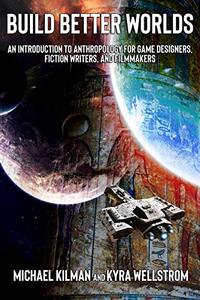 Build Better Worlds: An Introduction to Anthropology for Game Designers, Fiction Writers, and Filmmakers
Build Better Worlds: An Introduction to Anthropology for Game Designers, Fiction Writers, and Filmmakers
 Upon Stilted Cities: The Winds of Change (Chronicles of the Great Migration Book 2)
Genre: Science Fiction
Upon Stilted Cities: The Winds of Change (Chronicles of the Great Migration Book 2)
Genre: Science Fiction
